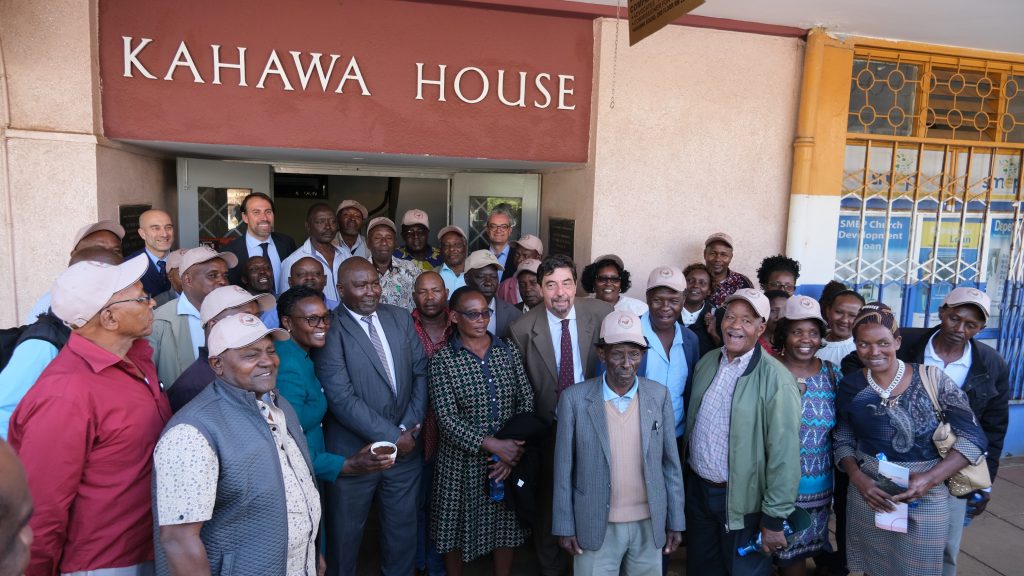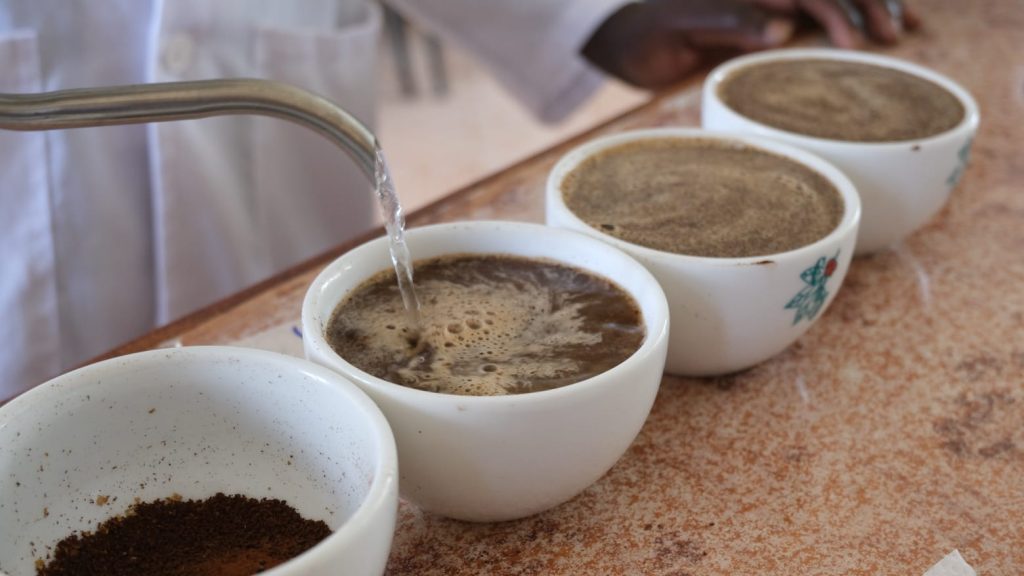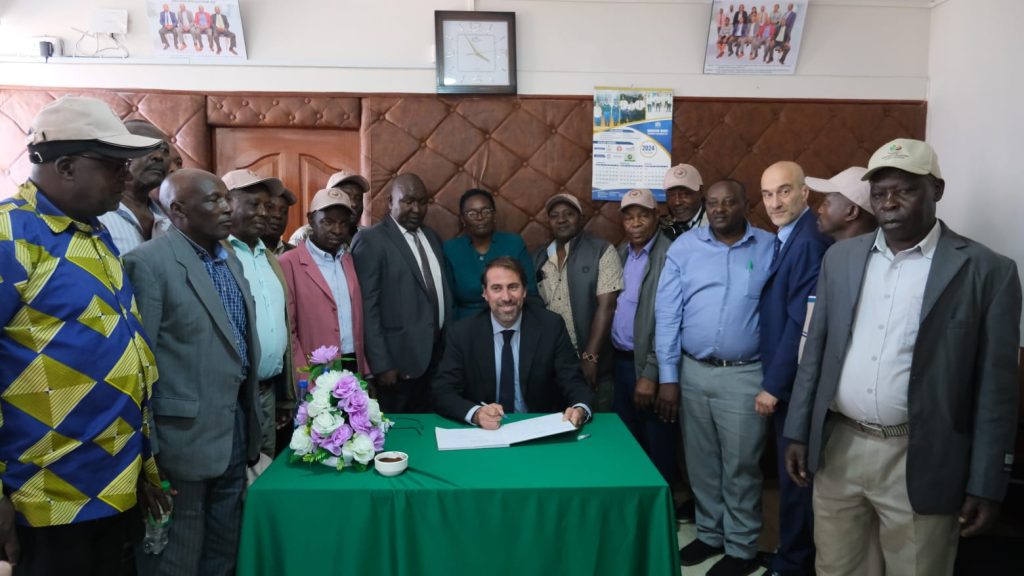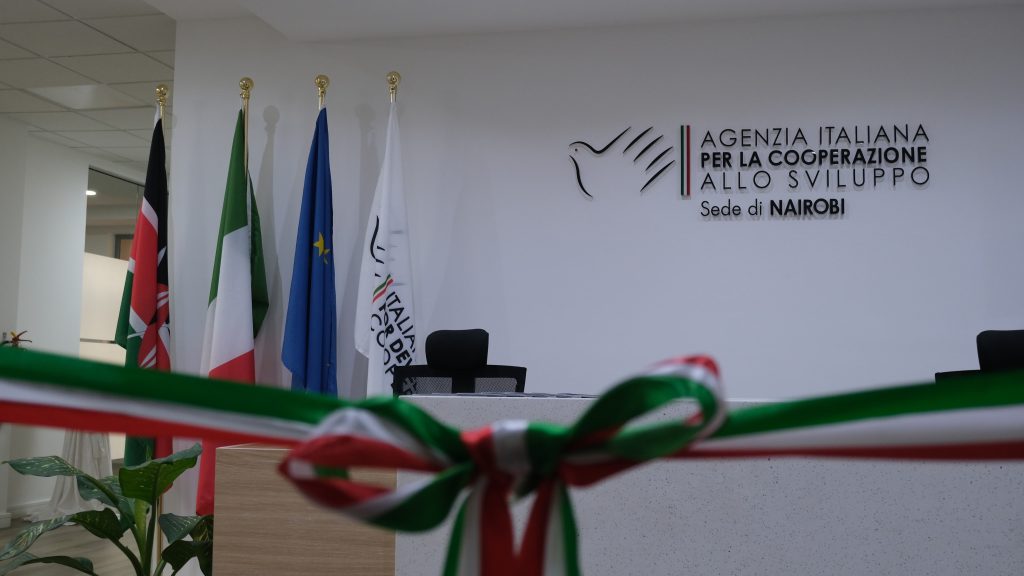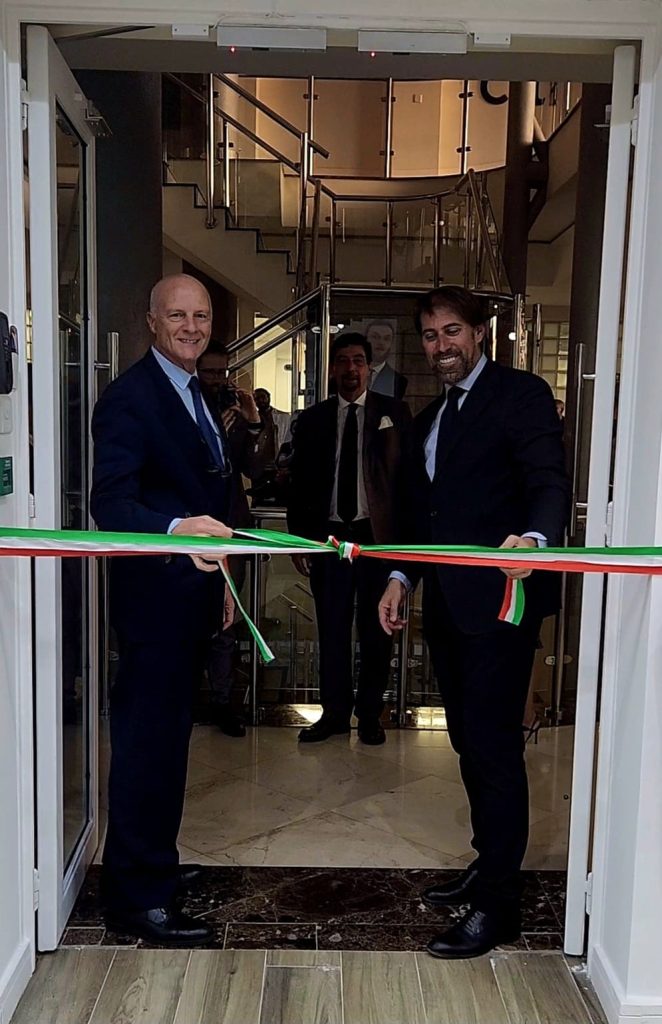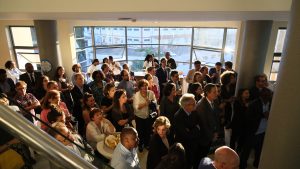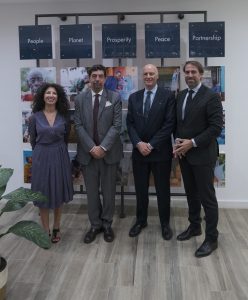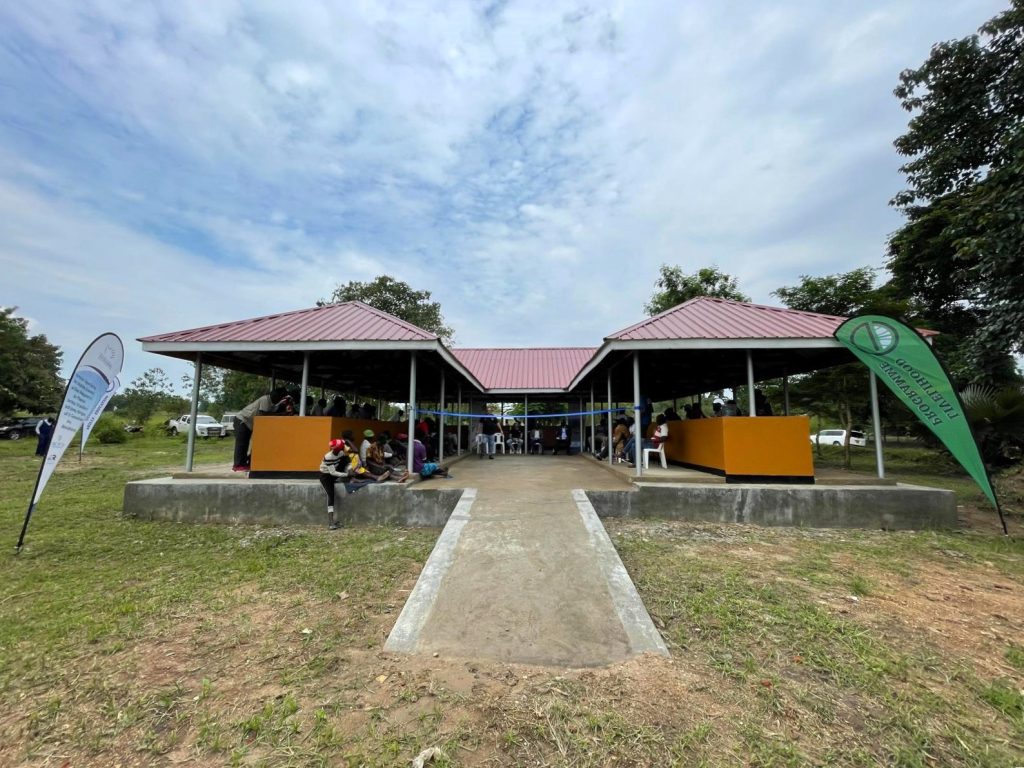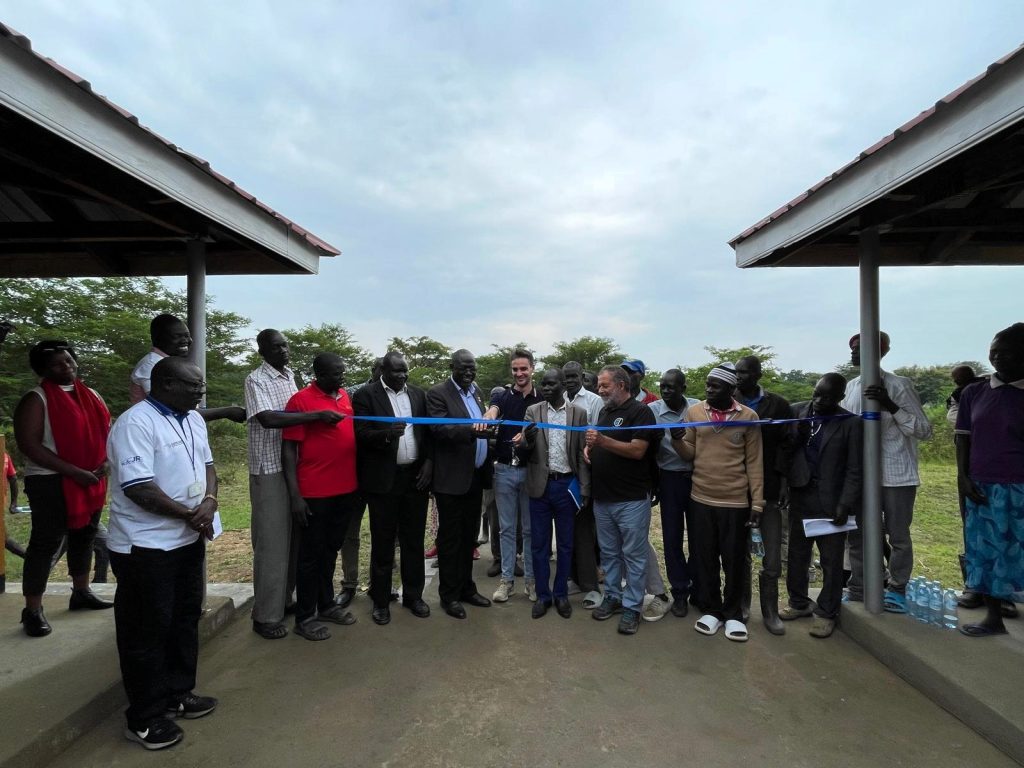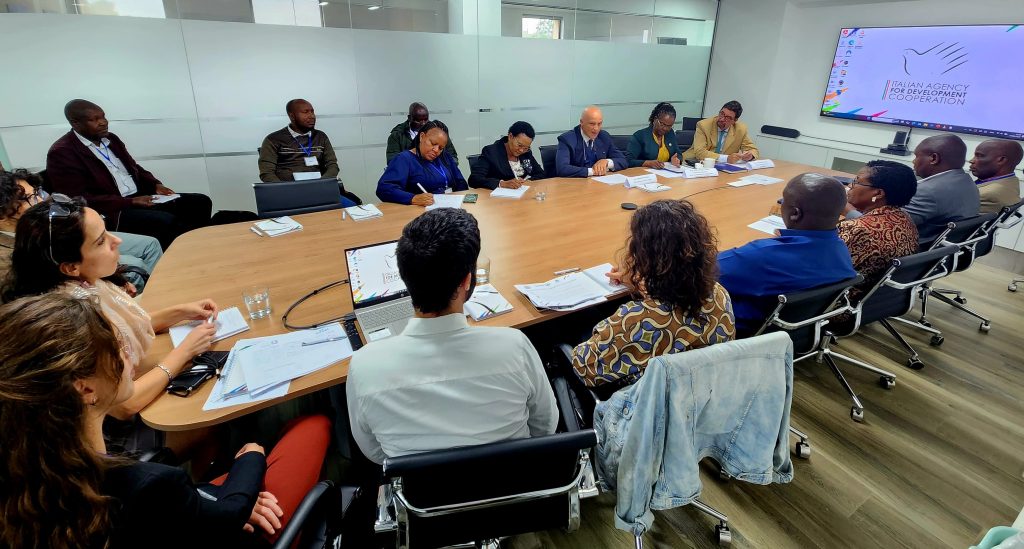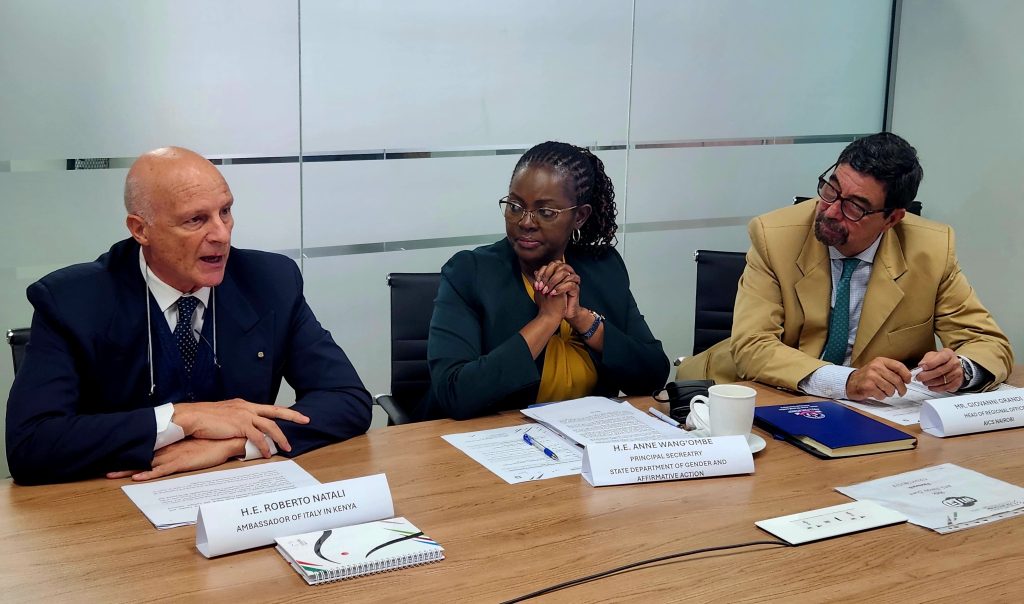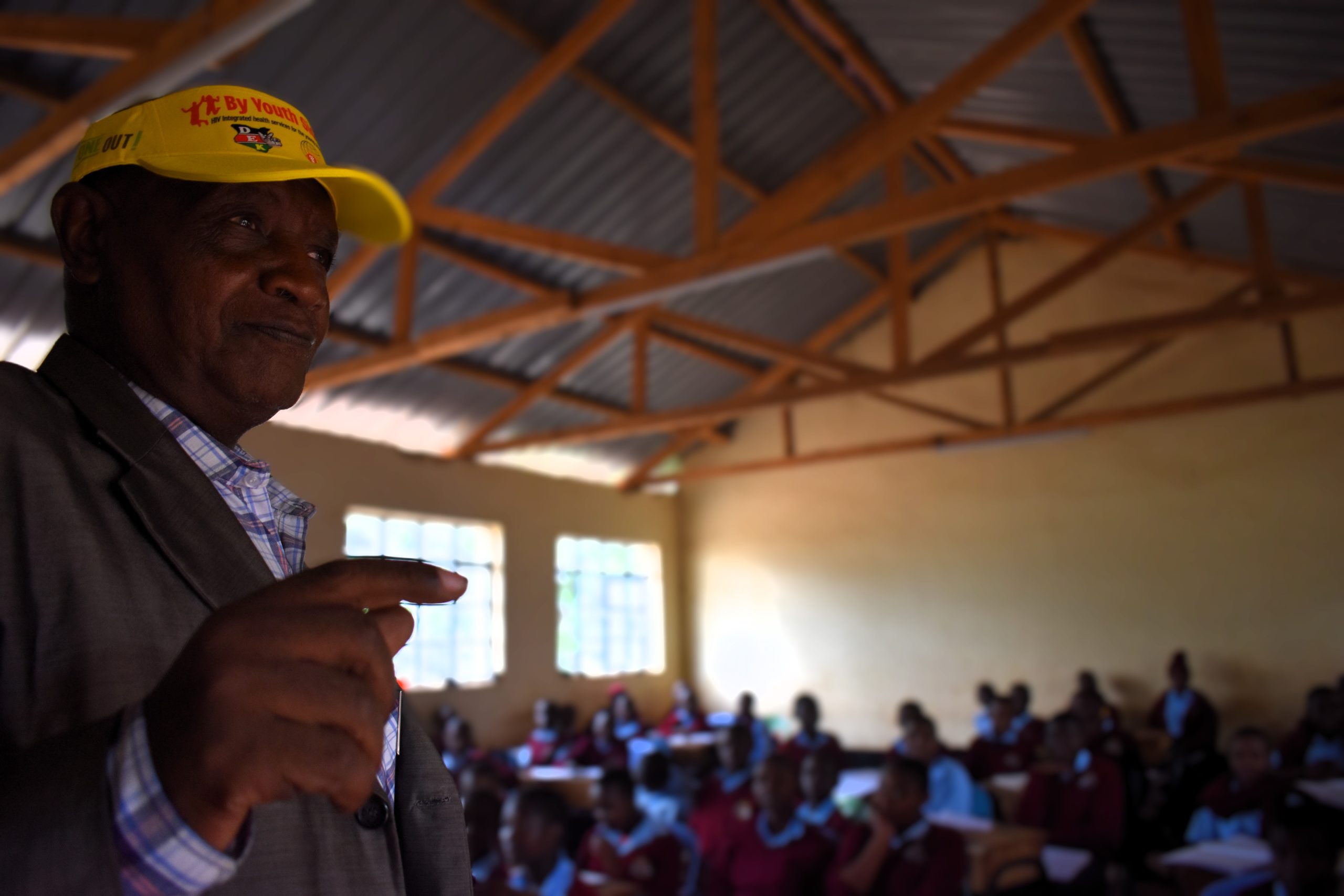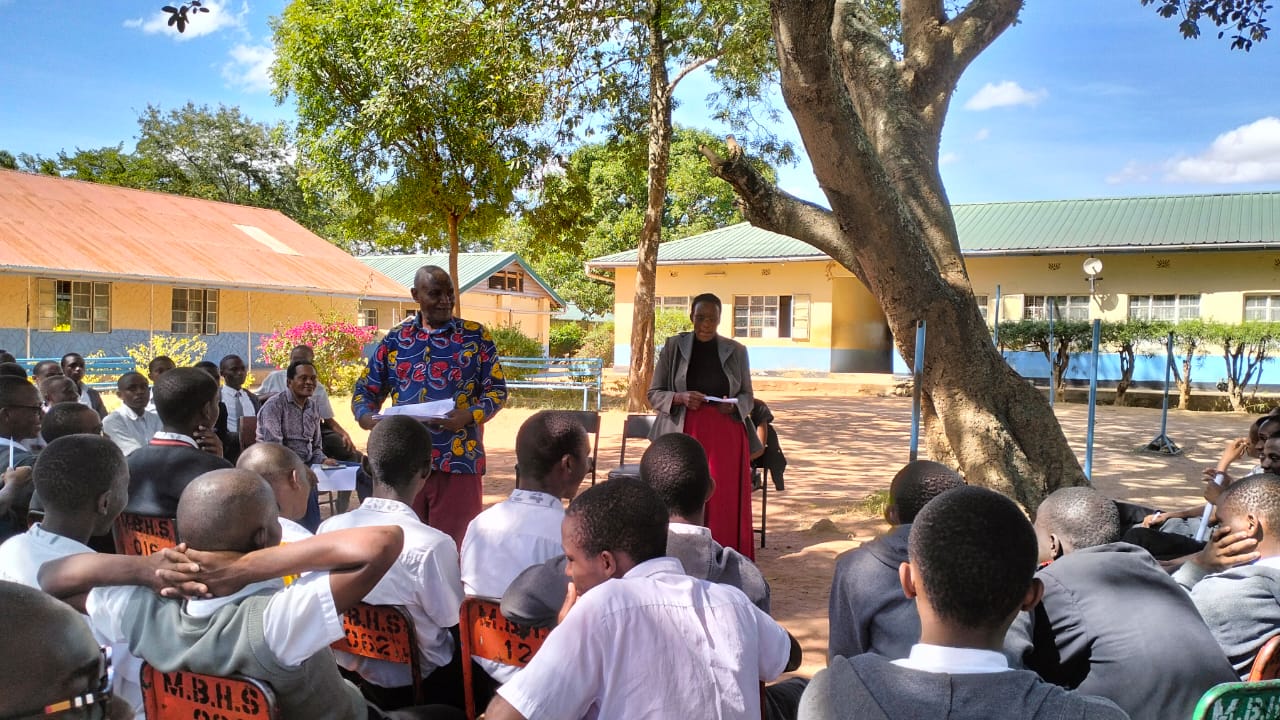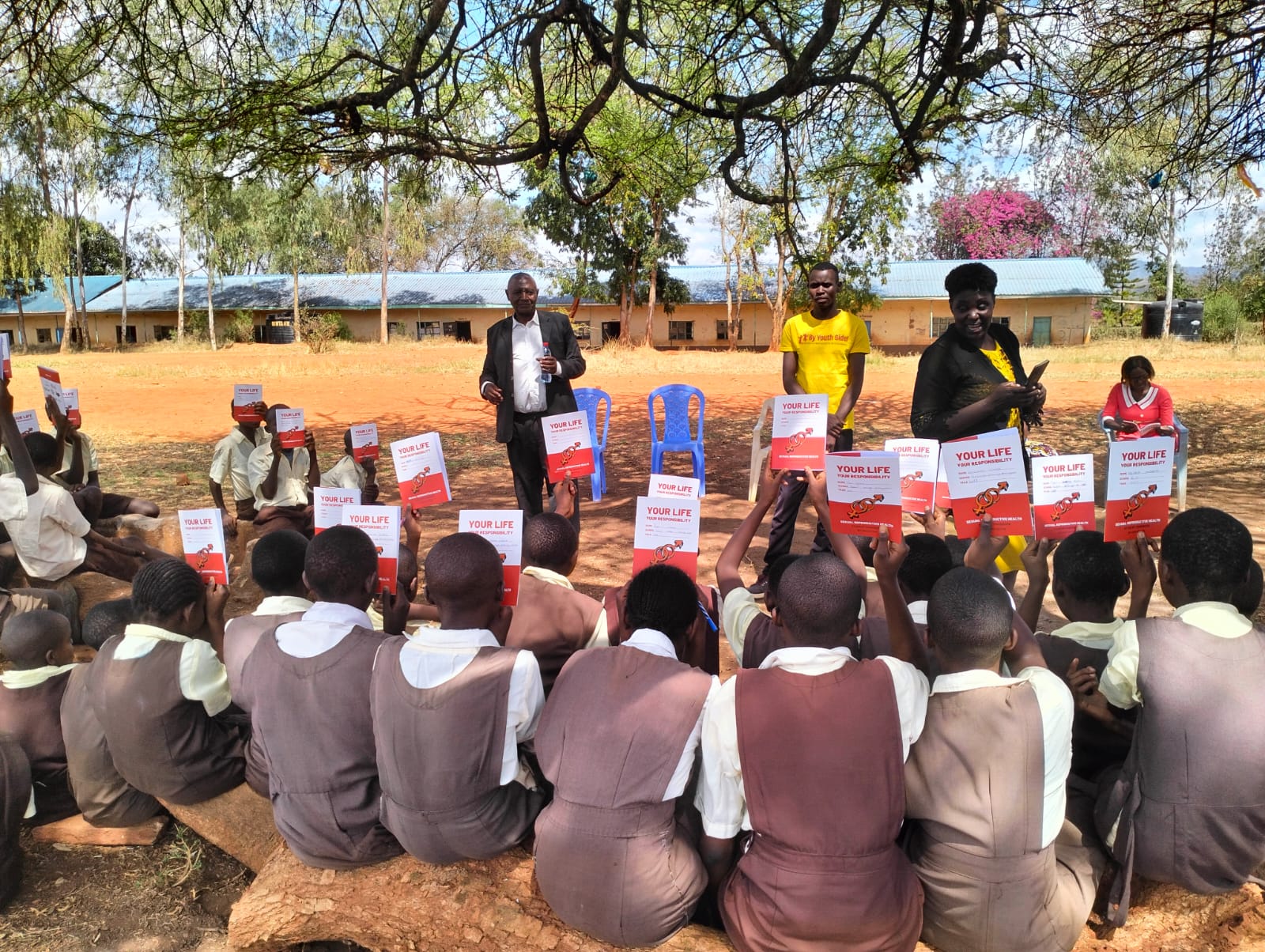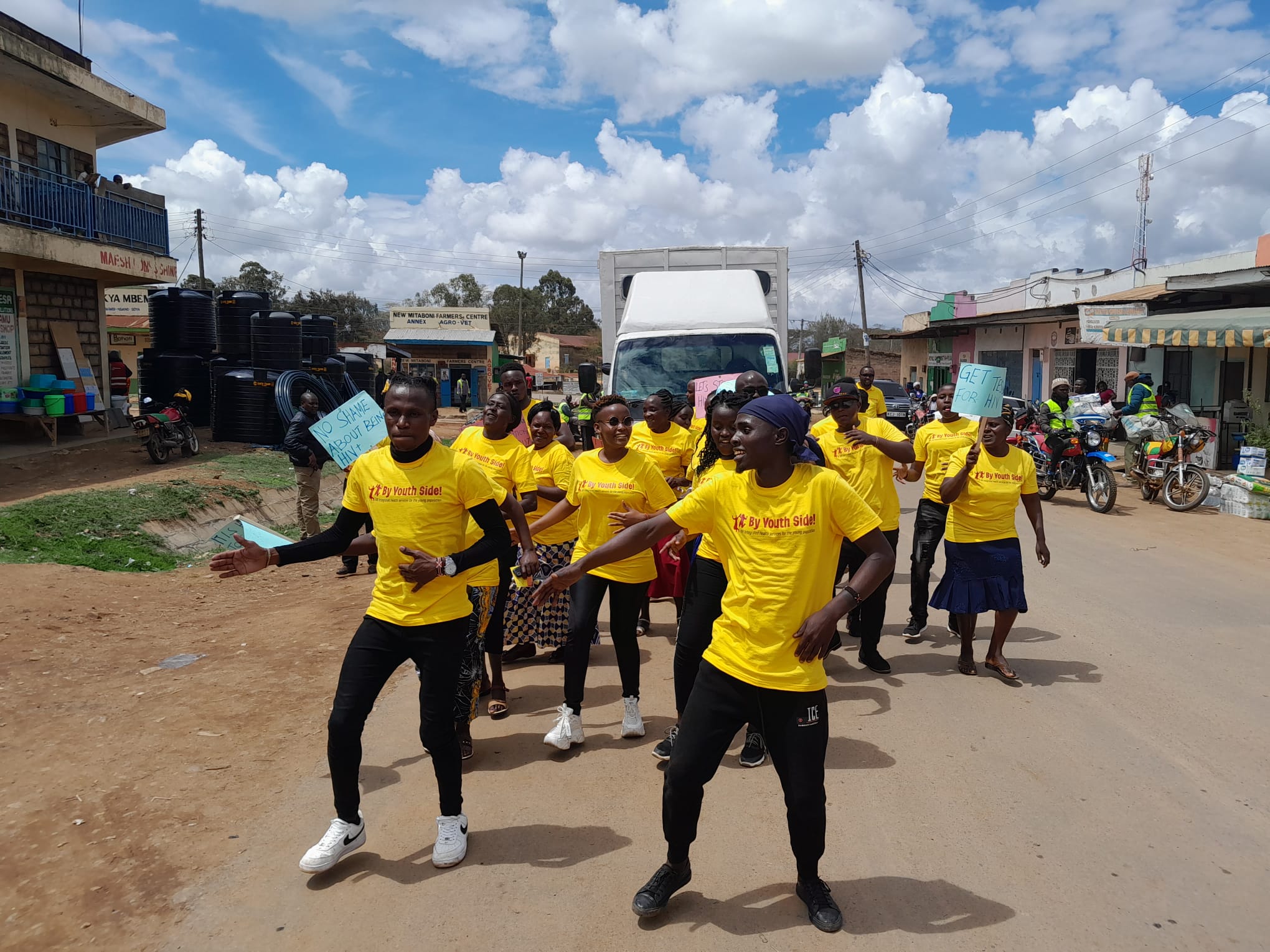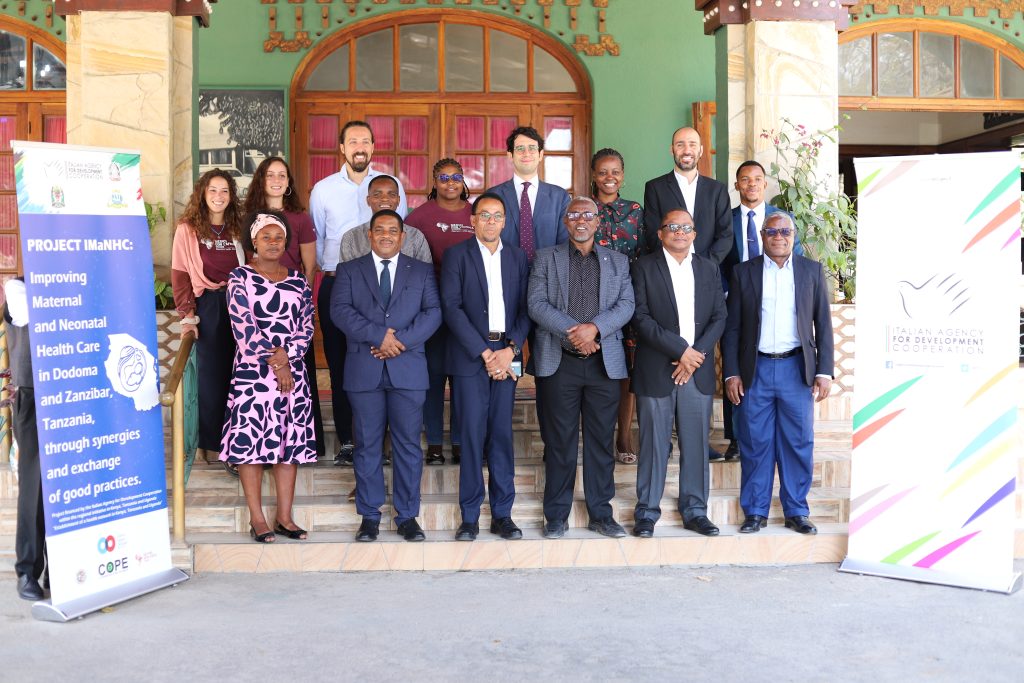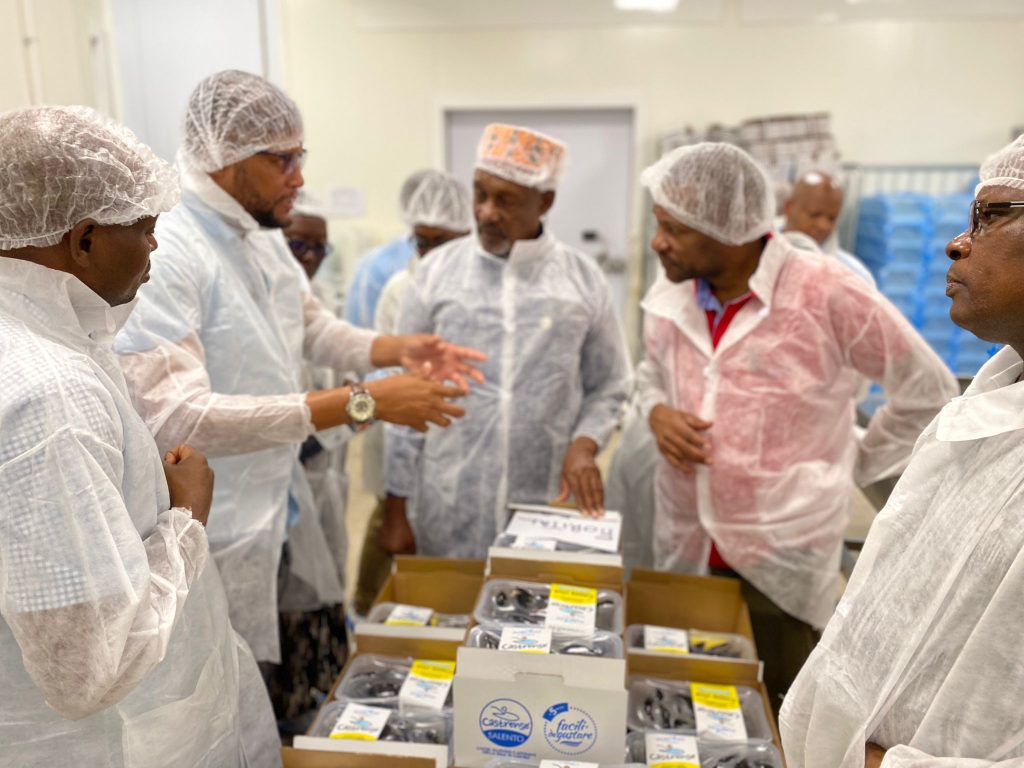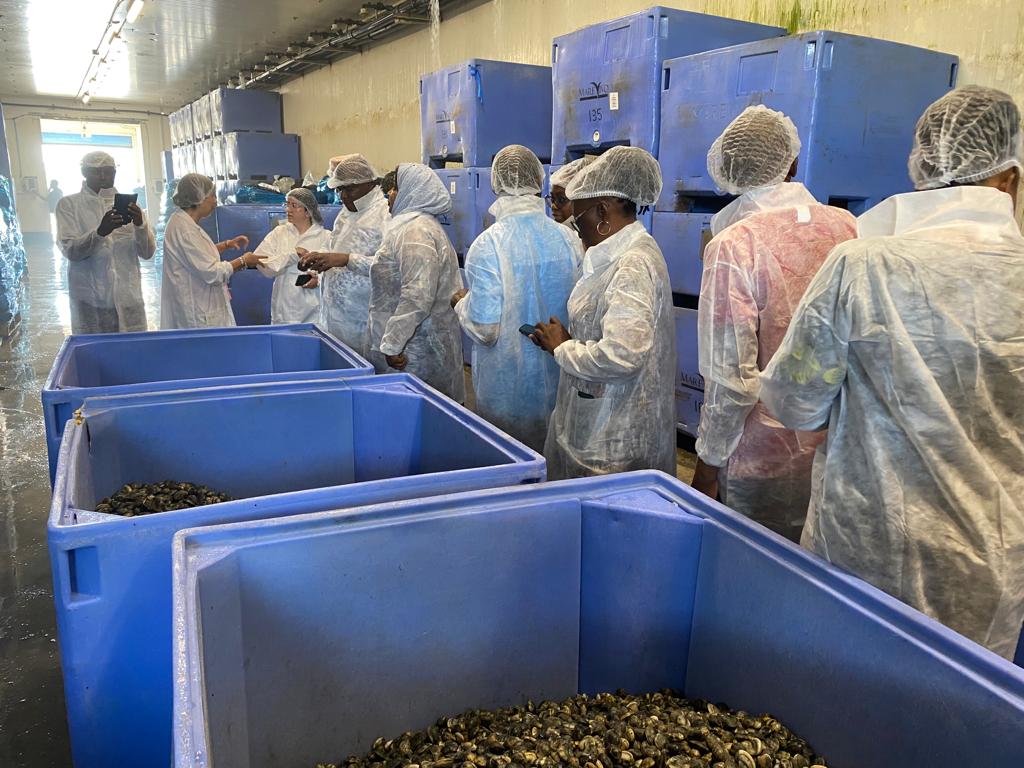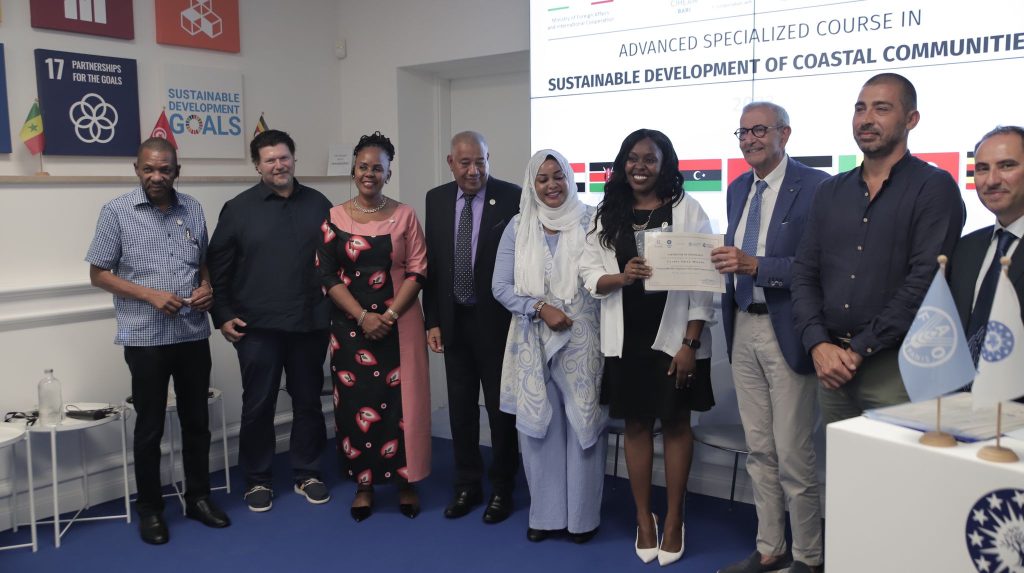Kiambu, 03/18/2024 - Today the Director of the Italian Agency for Development Cooperation (Aics), Marco Riccardo Rusconi, took part in the delivery and inauguration ceremony of a coffee laboratory in the County of Kiambu, financed by the Italian Cooperation as part of the Arabika project. This event, held at the 'Kiambu Coffee Growers Cooperative Union', saw the presence of the owner of the AICS office in Nairobi, Giovanni Grandi, and various stakeholders and partners, including the local government, United Nations agencies and representatives of Lavazza and Illy. Coffee is a central element of Kenya's economy, supporting over one million families.
In recent years, Kenya has witnessed a notable increase in local consumption, reflecting changing consumer preferences and presenting new opportunities for economic growth and job creation. The inauguration of the coffee laboratory in Kiambu County marks a significant milestone in this partnership: equipped with roasting machines and coffee extraction tools, the laboratory will play an important role in improving the quality and competitiveness of Kenyan coffe .
The initiative is part of the 'Kenya-Italy Sustainable Development Partnership' launched in 2023 together with the Kenyan authorities: this is the strategic document that indicates the line of action of the Italian Cooperation with Kenya for the next five years, defining a programmatic framework indicative of wide-ranging cooperation between the two countries.
During the ceremony, AICS Director Marco Riccardo Rusconi underlined the importance of exchanging knowledge in promoting positive change. In highlighting the role of Italian experience in coffee cultivation, roasting and quality control, he reiterated Italy's commitment to supporting Kenya's journey towards coffee excellence.
Giovanni Grandi, Head of the Nairobi Regional Office of the AICS, underlined the importance of the technical support and capacity building offered by Italy, adding that the presence of the main Italian coffee companies, Lavazza and Illy, demonstrates the potential for stronger ties between Italian and Kenyan coffee producers.
*** Background info
The "Arabika: Relaunching Gourmet Coffee Production in Kenya" initiative is financed by AICS in Kenya and is implemented through the Civil Society Organizations CEFA, AVSI Foundation and with the collaboration of E4Impact. The initiative, in its fourth year of implementation, affects the entire coffee supply chain, with the aim of improving the income and resilience of small producers in rural communities and increasing the employment inclusion of women and young people. In practice, the aim is to improve access to markets, both locally and globally, ensuring sustainable production and a greater economic return for small coffee lovers. Arabika, the result of a dialogue that began in 2018 between the Italian and Kenyan counterparts, is in line with the coffee supply chain development strategies of the Kenyan government and the counties. Arabika takes place in seven counties, involving 21 producer cooperatives that bring together over 40,000 small coffee farmers. Among the main results achieved, we highlight the renovation of seven laboratories for coffee tasting with important infrastructural interventions and the provision of innovative machinery and equipment, the training of hundreds of trainers, farmers and cooperative managers.
